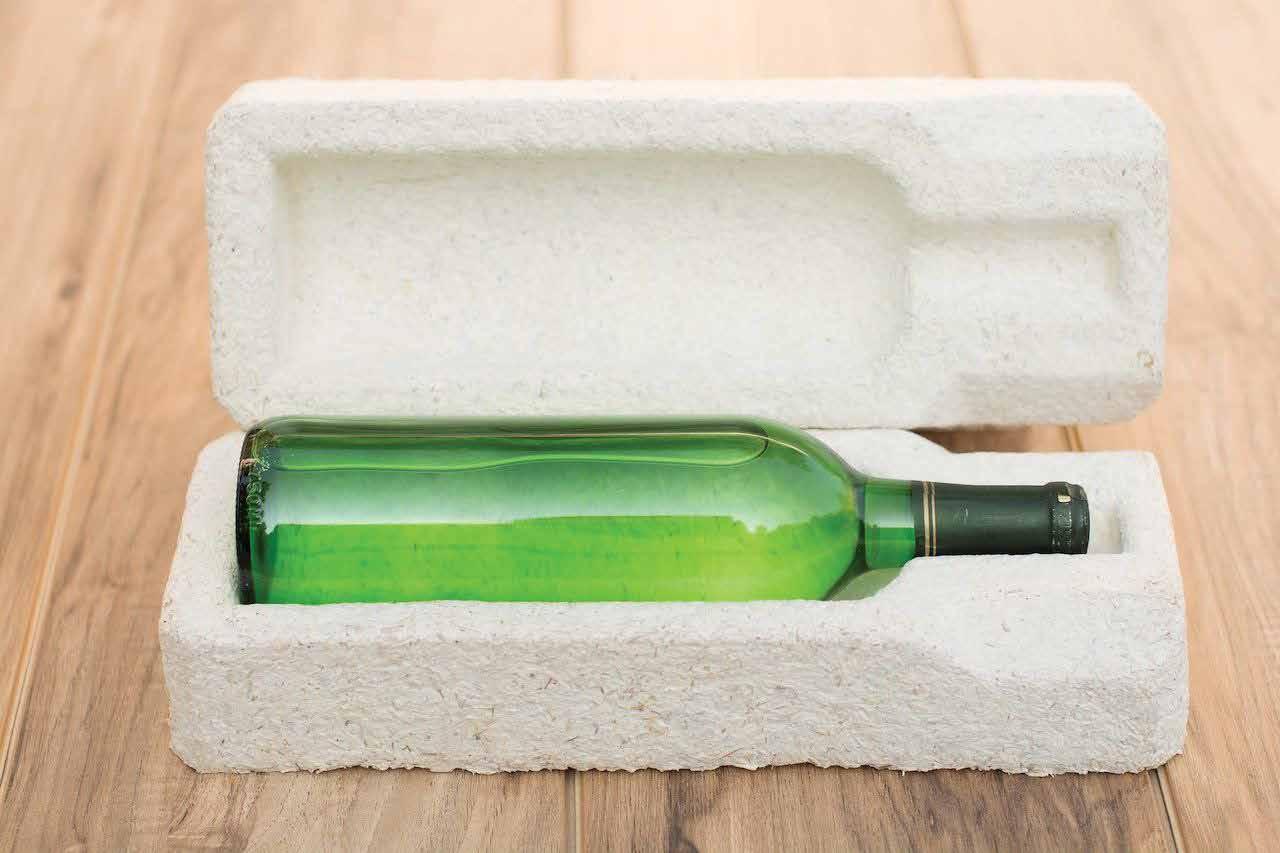S U STA I N A B I L I T Y
Mushrooming popularity Polystyrene is having a calamitous effect on the environment. Made from petroleum, it is non-sustainable, non-renewable and not biodegradable. It can also be deadly when ingested by wildlife. As part of its eco-efforts, Ikea has committed to using packaging made from fungi. Mycelium is the fungi’s root structure which can bind with other organic materials, such as wood chips or agricultural waste like corn husks to form solid shapes. Consumers can toss the packaging onto their garden compost heap where it will break down within weeks. Joanna Yarrow, head of sustainability for IKEA in the UK, says that “the great thing about mycelium is you can grow it into a mould that then fits exactly. You can create bespoke packaging.” This form of mushroom packaging has been pioneered by Ecovative in New York.
Turning “the green menace” into plastic cups, plates and cutlery Canada’s Department of Fisheries and Oceans describes the European green crab as “one of the 10 most unwanted species on the planet”. This invasive and resilient crustacean can wreak havoc on coastal environments, and females can release up to 185,000 eggs once or twice a year. They are voracious predators, devouring oysters, mussels, clams and juvenile crabs. The situation at one national park in Nova Scotia has become critical, and eradication is required to protect the delicate native eco-system.
Cutting food waste could help tackle climate change Finding smart ways to reduce food waste not only makes good financial sense, it could also help to tackle climate change. The UN’s Food and Agriculture Organization estimates that if food waste was a country it would be the third highest emitter of greenhouse gases after China and the USA. Growing, processing, packaging and transporting food all contributes to CO2 emissions. And then after it has been thrown away, the food rots and releases more greenhouse gases into the atmosphere. The average Kiwi family throws away three shopping trolleys of edible food every year. Love Food Hate Waste NZ’s website is chockfull of practical ideas about how to reduce food waste, including how to shop seasonally, and recipes for leftovers like broccoli stems and citrus peels. There is also a quiz to show in real terms how much money you could be wasting if food gets thrown in the bin. To learn more, visit lovefoodhatewaste.co.nz or connect with the Facebook page @lovefoodhatewastenz 24
J U N E 2 02 0 F Y I B U S I N E SS N H .O R G . N Z
Thanks to a chemist at McGill University in Montreal, this has become an opportunity to create an eco-friendly, biodegradable plastic – using the crabs’ shells. Parks Canada developed a precise technique to trap the crabs, allowing Associate Professor Audrey Moores and her team of scientists to harvest the crabs with the least disruption to the surrounding ecosystem. The shells are then crushed and mixed with a special powder to extract a chemical called chitin. Previously, this has been extracted from shellfish and crab shells by using hydrochloric acid, and then adding other chemicals. Although the resulting plastic was biodegradable, chemically tinted wastewater was a by-product. Professor Moores’ new method is far less toxic. “What we’re trying to think about is can we take this as a resource to make some material that a fishery can actually sell and value,” she says. “This project will not only develop a marine biodegradable plastic, but it will also enhance the recovery of deteriorated coastal ecosystems and provide a new industry to sustain coastal fishing communities.”
















